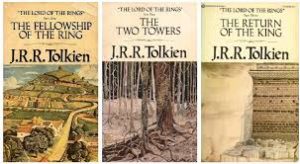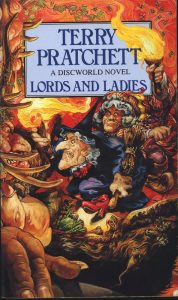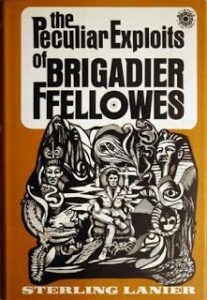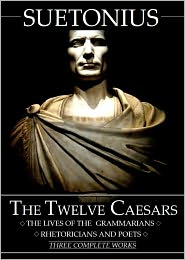Birthday celebrations on a desert island…
To those who know Roman fiction writer, SJA Turney,
you will know that this is his birthday weekend. What better way to celebrate than to find out what he would cart to a desert island?
A desert island, you say? But the very idea of being stranded on an island with no classical era ruins to poke around is horrifying! I know… my desert island can be Philae in Lake Nasser, yes? And if there can be a booth selling chilled pale ale too, then I’m home, baby!
To be honest, if I were to be stuck away on an island, I would need books. As a lifeline. And picking 10 is easy as the pie I would be desperately craving as I tried to knock up some sort of casserole of reeds, palm leaves and some sort of dead bird I found behind a rock.
- Lord of the Rings by J.R.R. Tolkien
There are several reasons to choose this book. Firstly, my good friend Dave taught me a valuable lesson once in the pub. He scoured the jukebox for ages, keeping me waiting until he found what he was looking for. Turns out he was searching for all the extended versions of songs. He reasoned that if he was paying to listen to songs while we played pool, it was better to get longer songs for the money. So that’s reason 1 for the Lord of the Rings. 1216 pages plus appendices. Plenty to keep you busy.
But there are better reasons. Lord of the Rings is, I think, the first full sized novel I ever read. And I read it annually throughout most of my formative years. And it never gets old or boring. Every time I read it I pick up on a nuance I’d either forgotten or missed. Every time I wait with bated breath for the Balrog to appear, for Boromir to redeem himself, for the Witch King of Angmar to appear. I could read it every year forever.
I’m a lover of Fantasy, and let’s face it: there’s no fantasy like Lord of the Rings. It’s the benchmark all other fantasy works compare themselves to. It is both a joy to read and an education. It is, to me, the very epitome of the good book.
- The Hitch-hiker’s Guide to the Galaxy ombinus by Douglas Adams
Cheating a bit, here, I know, but I’d not be able to choose a specific book. All five of Douglas Adams’s sci-fi classics have something to commend them. Also, see point 1 of my first book! 😉
If I were stranded alone on an island, I would need to laugh. I would need something funny. And very few writers for me can come even near to Adams for funny. The man was built of funny bones, and his death was one of the most profoundly sad moments in literary history for me. Moreover, not only was Adams funny, he was extraordinarily clever. My favourite quote of Adams’s is: “I love deadlines. I love the whooshing noise they make as they go by.”
The imagination, mixed with a surprisingly innovative approach to science, make these books fascinating. They ramble a little at times (especially the first two) as though Adams was literally making it up as he went along, but every page contains a gem – a shining jewel of wit as had never been matched for me. Even the footnotes are a hoot. Like this classic:
“The Great Collapsing Hrung Disaster of 03758 which wiped out all the old Praxibetel communities on Betelgeuse Seven is shrouded in deep mystery: in fact no one ever knew what a Hrung was nor why it had chosen to collapse on Betelgeuse Seven particularly. Ford Prefect’s father was the only man on the entire planet to survive the Great Collapsing Hrung disaster, by an extraordinary coincidence that he was never able satisfactorily to explain.”
Genius. Simply genius.
- A Song for Arbonne by Guy Gabriel Kay. If Lord of the Rings is the classic fantasy that set the standard, then for me Guy Gavriel Kay is the only writer to surpass that work. You’ll find three of his works in this list of ten, which says a great deal, Kay actually cut his teeth on fantasy aiding Christopher Tolkien in turning his father’s notes into The Silmarillion, which pretty much says it all, I suppose. Kay is the only writer other than Tolkien who has managed with fictional prose to leave me feeling heartbroken. It is a rare talent to produce that level of emotion in a reader.
A Song for Arbonne was not the first of his novels I read. That joy fell to the Fionavar Tapestry. But it was the first of his standalone fantasy novels I read, and it has stayed with me. I’ve probably read it half a dozen times. Set in a sort of very realistic fantasy spin on Medieval France, complete with Troubadors, mercenaries and Italian assassins, it is a rich work full of truly fascinating characters (Kay can create the very best characters.) A Song for Arbonne is one of his best works, and I cheer for the good guys and growl at the bad guys, but most of all I howl in anguish at the man who is causing half the trouble and yet could solve it all, who is so close to redemption but too weak to reach for it. This book exhausts me in the best possible way.
- Lords and Ladies by Terry Pratchett. I said you needed to have a laugh if you were marooned, right? Well obviously aside from Adams, the other humour great for many readers is Pratchett (and another sad day with an author dying way before his time too). Pratchett might have started by taking little pieces of the real world and using them to construct his tales, but soon he was carefully demolishing reality, labelling each brick, and then putting them back together in his Discworld in a different, much more humorous way. He was a man who could provide a hilarious new angle to just about anything.
I could have chosen any one of at least a dozen books to go here. I almost cheated again and put the Discworld series down, but with 41 books in it, that was probably going too far. So I chose Lords and Ladies.
Of Pratchett’s novels, I loved the ones about the Guards most, I think. And then the Wizards (though the faculty rather than Rincewind, who always annoyed me a bit.) And some of his standalone Discworld novels are among the best. Small Gods was my first choice before I changed my mind. His novels about the witches were good but for me didn’t measure up to the guards or the wizards. Equal Rites and Wyrd Sisters were interesting, sure…
Then I read Lord and Ladies, and it blew that preconception out of the water. It was one of his very best novels and revolved around characters (the witches) and a subject (the faerie) about which I wasn’t all that interested. And yet somehow his spin on it changed my whole outlook. This was a ground-breaking work for him, and I still read it often.
- The Sarantine Mosaic by Guy Gavriel Kay
Yes, we’re back to Kay. Told you we would be. And once again I’m cheating. Because in actual fact, this is two books (a duology or bilogy apparently!). Sailing to Sarantium and Lord of Emperors. See book 3 for biographical reasons for Kay’s work. This is probably Kay’s book that most directly references my loves and favoured eras.
The Sarantine Mosaic is a fantasy spin on the 5th century Byzantine empire, specifically centred around Justinian and Theodora. The plot involves a mosaicist travelling from what is clearly Ravenna in Italy to Constantinople (Sarantium in Kay’s world) to decorate the dome of the emperor’s new temple. This is plainly the Haghia Sophia of Justinian in Istanbul.
And alongside this artistic plot, we are introduced to all the warfare, dangerous politics and imperial power and corruption of the empire. We get to see Greek Fire at work. We get to see Kay’s version of the Nike riots, the worst riot in the history of the ancient world. And we get to see the master of character and emotion take on one of the most interesting couples ever to sit upon a throne. It’s a masterpiece. And I wouldn’t want to be without it.
- Roman Civilization by Lewis and Reinhold
Might seem an odd choice, but you have to remember that I am an obsessive over Roman history. This book, which I first dipped into during my degree, is a collection of ancient Roman documents, rather than a novel or a textbook. It is a group of writings and records from the founding of Rome through to the fall of the western Empire.
It covers almost every aspect of Roman culture from war to theatre and politics to philosophy. And these are the words of Romans themselves, and not of any modern interpreter. In these myriad fragments, you are peering into the lives of people dead for two thousand years. There is little to compare to the thrill of that.
When I was doing my degree (and still on occasion now that I am writing Roman novels) I would dip into this book looking for detail on certain specific subjects. But that is not the value I would take from it on a desert island, clearly. That would be just picking up the book every day and opening to a random page to peer into a world long gone and learn a tiny fragment about it. Absolutely fascinating, and if you have a love of classical history, then you could do worse than peer into this book yourself.
- The Complete Calvin & Hobbes
Again there has to be humour. And sometimes your eyes are tired or you just want a quick smile. As such there are plenty of worthy cartoonists (Schultz or Larson for example.) But there are subtle aspects to Calvin and Hobbes by Bill Waterson that surpass other cartoonists.
As the name suggests, Waterson uses these short storyboards of a boy and his imaginary (?) tiger friend to pull apart the world and the human psyche and examine what makes us tick. Some of the cartoons are so deep that they leave me agog. And yet, at the same time, they are lovely, funny and heart-warming. Fabulous stuff, and very much my favourite of all cartoons.
- The Lions of Al-Rassan by Guy Gavriel Kay
Alright, I’ll stop here. My third Kay book in the list is my favourite. As well as being a lover of Roman history I also have a strange affinity with Spain. I’ve been going there for more than twenty years on and off, and I love the place. I love the language, the people, the geography, the culture and the history. And while that history ties in very nicely with my Roman obsession, it also includes a subject unique to that peninsula: the Reconquista. Oh there were plenty of crusades in other places to match it, I think, but nowhere else had the Islamic peoples so thoroughly settled and ingrained their culture into the landscape before the crusaders drove them out. Moorish culture had become an integral part of Iberia. And by the time Ferdinand and Isabella drove out the last Moorish leader, Boabdil of Granada, the moors were as much natives of the peninsula as the Christians, for they had been rooted there for seven centuries.
It is a tremendously sad subject, in which both sides can be seen to be both right and wrong, to be cruel or to be accepting. It is hard to look at that great campaign of centuries and not wish they could have just found an acceptable way of compromising.
This is well portrayed in Lions of Al-Rassan, which is Kay’s spin on the story of El Cid (Rodrigo Diaz de Vivar) and the Reconquista. It is the most action-packed of his novels, to me, and also his best exploration of character on both a personal and national level. It also contains his most heart-breaking moment. The strongest of all his characters are here, from the world-weary Christian warrior, to the smooth Moorish poet/prince/assassin, to the young female Jewish doctor.
It’s the very best, and now I’ve made myself want to read it again.
- The Peculiar Exploits of Brigadier Ffellowes
An odd choice, perhaps, and probably one you’ve not heard of. This collection of short adventure stories by Sterling Lanier sort of fell into my lap many years ago. I picked up the hardback in a sale at the library purely because I liked the title. I have since somehow lost the book over the years and am desperately yearning to read it again, but it is out of print and the only copies I can find cost too much to justify. That’s part of the reason, then. Because if I have it on this list, then at least I have a copy again.
These tales, told by their protagonist as reminiscences at a gentleman’s club, are outlandish, macabre, exciting, weird and incredibly varied. Monsters about in many forms, and all are experienced by the redoubtable Brigadier Ffellowes. Well worth a read, and I really must find myself another copy. In fact, in the days I was running Role-play campaigns, some of my plots were heavily influenced by Lanier’s collection.
- Suetonius’ Lives of the 12 Caesars
Yawn-worthy for some, I’m sure. There are a few accounts written in ancient Rome about the first century of imperial rulers. Caesar of course, wrote about himself, so we can write off a great deal of reliability there. And every author was writing to please the emperor of the time, so there’s always going to have been spin involved. Tacitus remains one of the more likely sources, and there are certainly more unreliable than Suetonius, who was writing this account more than a century and a half after his first subject died and three decades after the last.
But what I love about Suetonius is not the facts he gives on the emperors (because they are the same sort of ‘facts’ the Trump administration seem to dream up on a daily basis.) No, what I love is two-fold:
Firstly, he is an interesting writer to read, which is not often the case with ancient sources. He actually translates into very readable and fascinating prose, which gives us something of a peek into the mind of a second century Roman.
Secondly, Suetonius is one of Roman literature’s great dramatists. Everything he writes I filled with excitement and intrigue, humour and shock. Had he been writing now, his books would see him facing court cases on a daily basis. If you want stories of the more exciting and seedier side of Roman history, read Suetonius. And that’s why I’d take him…
*So that’s me on the island set for a number of years, I figure. And when I’ve got through them and eaten the last thing to fall out of the sky, wrapped in some kind of leaf, I’ll just wait for the next boat load of tourists and escape on it Thanks Prue. You made me think, there!
It’s a pleasure, Simon. If you leave the books behind, it will be an absolute treasure trove for the next Robinson Crusoe who washes up. Have a happy birthday!














Leave a Comment